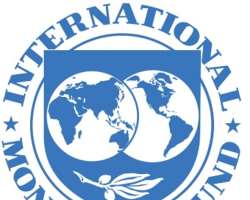Government Officials from East Africa discuss Risks to Public Finances in the Region

KAMPALA, Uganda, May 10, 2014/African Press Organization (APO)/ -- The International Monetary Fund's Regional Technical Assistance Center for East Africa (IMF- East AFRITAC) held a workshop on “Fiscal Risks: Identification, Reporting and Management” in Entebbe, Uganda during the period April 28 – May 1, 2014.
The workshop, the first of its kind in the region, was attended by twenty officials from finance ministries and central banks from Burundi, Ethiopia, Kenya, Malawi, Tanzania and Uganda. Two officials from the East African Community (EAC) Secretariat were also present. Led by a team of experts from the IMF's Fiscal Affairs Department and IMF – East AFRITAC, the workshop explored the main sources of risks to public finances in the region and ways to mitigate these risks.
Participants discussed the potential risks to government finances in the region from a reliance on revenue from volatile primary commodity exports and uncertain donor grants. Discussions also covered fiscal risks arising from rapid increases in infrastructure spending, including through investments by state-owned enterprises and the use of public-private partnerships. Several governments in the region are also decentralizing activities to sub-national government with the aim of improving service delivery and accountability. Participants discussed the risks that these developments potentially create for the effective management of the public finances and approaches to mitigating such risks. Other issues covered were the sustainability of public pension schemes, payment arrears and government guarantees. The Third Pillar of the IMF's new Draft Code on Fiscal Transparency was used as an analytical framework to discuss these risks. The example of Kenya, which already publishes an annual statement of fiscal risks, was noted as an example to follow in the region.
An important part of the workshop was devoted to exploring how improved accounting and reporting practices can enable governments to better understand and be more transparent on the fiscal risks they face. Mr. Maate from the EAC Secretariat underlined the necessity of harmonizing reporting practices in the region, as the EAC moves towards a monetary union.
At the opening of the workshop, Mr. Lawrence Kiiza, Director of the Economic Affairs Department of the Ministry of Finance, Planning and Economic Development of Uganda, outlined some of the lessons to be learnt for fiscal risk management from the sovereign debt crisis in Europe. He expressed his appreciation for IMF – East AFRITAC's commitment to improve technical capacity in the region and its responsiveness to the emerging needs of its country members, as exemplified by the organization of this highly topical workshop.
At the conclusion of the workshop, Mr. Fazeer Rahim of IMF – East AFRITAC, referred to the emphasis that the IMF Draft Fiscal Transparency Code places on fiscal risk reporting and management. He outlined the scope of IMF's technical assistance in this area to countries in the region in coming years, including the organization of a second workshop by IMF – East AFRITAC in 2015.
